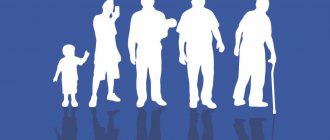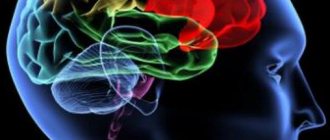People have long attached great importance to their development and assessment of their own abilities. Centuries ago, there was an opinion that people chose the wrong vector of development. In what sense? Instead of making efforts and engaging in self-development, people do not stop working on what surrounds them. With little or no attention to self-care, a person tries to make the conditions around him as comfortable as possible. On the other hand, not all people have a materialistic mindset. Many people value what they have and value things that money cannot buy. It is important to realize that the best "investment" is the effort made to improve a person's spiritual, social and physical capabilities.
Do you have potential?
One famous philosopher and psychologist William James, who lived in the 20th century, came to the conclusion that most people do not realize the potential that was originally inherent in them. According to him, every baby has prospects that its parents do not even think about. This is why most people remain at a low level of development of their talents - they do not realize how wide the horizon of their abilities is.
Let's look at examples of how human capabilities develop. New social skills are formed quite quickly. If people understood that they could learn something so quickly, their lives would turn out completely differently. For example, to be able to play a musical instrument well and be considered a master of his craft, the average individual will need about one year. Is this too much? Not at all! A person's capabilities and abilities are so incredible that even in such a short period of time he can learn something truly beautiful. Therefore, thoughts that you will not achieve a certain level of development or a specific goal are often formed based on stereotypes of lazy people. To see how amazing a person's abilities are, you just need to set a goal and pursue it. But what will help you achieve your goals and reveal new human capabilities?
Three vectors of personal potential development
There is no single strategy in psychology that would indicate exactly how to develop personal potential. But most outstanding psychologists identify 3 vectors for realizing human potential.
- Development at the level of the biological unit. Physical and psychological health and normal development according to age come to the fore. As a result, a mature, healthy, normally functioning organism is formed.
- Realization of potential through socialization. As a result, an individual is formed who easily adapts to the requirements of society, is able to adapt to life in it, take on a certain social role and cope with it successfully.
- Realization through personality development. It involves awareness and acceptance of one’s own uniqueness, without abandoning the roles and social norms offered by society. As a result, an autonomous, self-sufficient personality is formed, which accepts the right of others to remain themselves and is able to interact normally with others.
Realization of potential through personal development occurs in 2 stages.
The first lasts until adulthood. It is aimed at forming and improving self-regulation mechanisms - first the child, then the teenager learns to manage his emotions and behavior, make decisions and anticipate their consequences, follow generally accepted rules, and be a full-fledged member of society.
The second stage begins when a person reaches adulthood. He is able to regulate his behavior not only in accordance with social requirements, but also those that he sets for himself.
Full, harmonious development of a person’s potential is only possible if all three vectors develop.
The importance of systematic effort
Most people never achieve success because they are not persistent enough in their aspirations.
Patience and a little effort. This proverb accurately emphasizes the importance of systematic effort. Even if, in an effort to develop some kind of talent or quality, the attempts look unconvincing, and the results cannot be called victorious, it is important to continue to push the road in the intended direction every day and not give up.
Many people believe that a person's special abilities are inherent to him from birth.
So, people celebrate talented individuals. This is how many justify themselves. Don't think that talented people were born that way. In most cases, we see not so much gifted people, but hardworking and purposeful ones. It is important to make every effort to develop your personality. Such efforts bring great inner satisfaction.
Human physical capabilities develop according to the same principle. In this regard, of course, much does not depend on us. For example, a person whose height is 160 centimeters cannot become a professional basketball player, no matter how hard he tries. However, he is still capable of succeeding in this matter if he persistently strives for the goal.
Unique people
They were either born this way, or they managed to find ways that allowed them to become literally extraordinary.
- Alexander Zass. Russian athlete who performed in the circus under the pseudonym Samson. He could quite calmly put a horse on his shoulders and walk with it around the arena, as if nothing had happened. Raise the piano with two young ladies on it - a pianist and a dancer. Or hold it with your teeth while hanging by your feet under the dome. Samson could catch a cannonball with his bare hands. Drive the nails in with your palm and then pull them out by the head. In general, he could do a lot of things, but it’s not clear how he managed it all.
- Mikhail Kuchkin, also a circus performer, bent horseshoes, putting several pieces together. He was nicknamed “the king of horseshoes.”
- Nikita Lomovsky was driving piles with a cast iron hammer. And everything would have been fine, but he was the only one, like Thor, who could lift it. It took eight people to even slightly lift this weapon.
- And Paul Anderson, lying down, held the flooring along which an elephant weighing approximately 9 tons walked. And he, like Samson, with a horse on his shoulders, climbed the steps, the number of which exceeded 30.
Concentration
To stimulate the development of human capabilities, it is important to make the right choices and be able to concentrate efforts. Let’s remember the proverb again: “If you chase two hares, you won’t catch either.” To develop individual abilities and talents, it is important not only to follow your own path, no matter what, but also to choose this path correctly, completely focusing on it.
Let's return to the example of a short man who is confident that human capabilities are limitless. He set his goal to become a professional basketball player. What can be noted on the positive side in this situation? Firstly, the fact that a person is not afraid to set ambitious goals. Secondly, he makes every effort and does not give up, despite the difficulties that he will definitely have to face. However, a person will still not be able to achieve his goal and become a professional basketball player. What's wrong? It's all about taking the wrong road.
To best realize their opportunities, people should soberly assess their abilities and circumstances in order to set achievable goals. At the same time, it is important not to be distracted by extraneous tasks, the incidental solution of which can stop development and interfere with conquering peaks.
Maternal instinct
- In emergency situations, a person can do something impossible. Especially when it comes to the life and health of your own child. In Georgia, a Chevrolet Impala, an iconic, quite powerful American car, suddenly fell off a jack and crushed the guy Tony who was repairing it. Fortunately, the mother was nearby at that moment. No, she didn't call 911. She simply lifted the car and held it until she was sure her son was out. She could not logically explain her action, nor could she ever repeat this trick again.
- And in Quebec in 2006, a woman got into an unequal fight with a real bear. She noticed him approaching the place where her son was playing with friends. One would think that she died, buying a little time to save the children. But it was not there. The frightened mother not only managed to hold out for a long time, holding the beast. But also to emerge from the battle as a winner with a couple of scratches, literally knocking out the bear. The neighbor who arrived in time could only finish him off with shots.
- In St. Petersburg, a 2-year-old baby fell from a seventh-floor window, but his mother rushed after him and managed to grab him. With one hand she held her child, and with the other, more precisely, with just two fingers, the index and middle, she clung to the cornice. The shock was so strong that the rescuers barely managed to open her fingers to remove her from the window. She let go of the child’s hand only a few hours later, despite the persuasion of the specialists.
Unusual Potential
Most people around him are much more interested in seeing not a person’s social capabilities, but his unusual talents and body abilities. This happens because extraordinary mental qualities do not catch the eye, while the phenomenal capabilities of the human body are noticed by everyone.
People are used to thinking that they have their limits. According to scientists, it is partly for this reason that a person sometimes cannot overcome some obstacle or height, although he has the potential for this. The limits of human capabilities can be tested in stressful situations, when the mental boundary - that which is holding back - ceases to function as usual. This is proven by many examples. Surely you have heard more than once about people who, out of fear of danger, covered a height of more than two meters in seconds or showed strength tens of times greater than their usual strength. All this suggests that human capabilities are much greater than we used to think. With this in mind, we shouldn’t think that we can’t do anything.
Let's consider what human capabilities have been demonstrated in different areas. These real cases confirm that almost anything is achievable.
Other important skills
All applicants are now subject to the same requirements: “We need hard skills / soft skills !” – and put forward a huge list of personality traits and patterns of behavior in the company. But a great specialist must have not only “hard” and “soft” skills, but also practical and professional ones, and not forget to remain a Human.
Example of hard skills and soft skills
Above I described the most important skills for a person, but there are also skills that people also really need. They were not included in the top, but are also necessary for a person to have a productive social life:
- Stress resistance - here it is important that a person controls his emotions in force majeure circumstances and finds quick solutions. This skill helps you finish what you start, no matter how difficult it may be. Stress-resistant people are valued at any job and in the family.
- The development of charisma is the brightness of a personality that can evoke emotions in others. This skill allows you to infect everyone with positivity, love for life, and establish contacts with any people. The behavior of these people reminds me of a pulsation - life pulsates in them, they are like fireworks.
- Confident work on a PC - now any enterprise cannot do without this skill. All processes are so computerized that without confident work on a PC, you will either pay a lot of money to specialists, or spend weeks doing the amount that can be done in a day. This skill saves time and money.
- A healthy lifestyle is a personal matter, whether to lead a healthy lifestyle or not, but without this skill you will quickly die. A healthy lifestyle involves not only proper nutrition, but also taking care of your physical fitness (exercise, training) and psychological comfort. In fact, this is a big topic that can be discussed for a long time, the main thing is to take care of yourself.
- The ability to defend your point of view is a good skill; it helps you not to get lost among the opinions of others and to be respected in society. To defend your opinion means to be able to formulate it and present reinforced concrete arguments. This skill is important for absolutely everyone, since in any dispute the one with the most arguments wins.
- The ability to abstract yourself and rest on time is a skill to “forget everything” in time in order to preserve your health and nervous system. They say that in order to work well, you need to rest well - that’s the point! When the brain is clean and bright, strength has accumulated, then all situations are perceived differently and you want to live!
- The ability to motivate yourself and others is a skill a bit like developing charisma, but the goal is important here. This skill is very important when working in a team. When a person finds the right words, takes specific actions, stimulates those around him to work together and achieve results.
- The ability to work in a team - and this skill is often included in different structures of a person’s skills, since it is important for all of us to learn this. It develops in a person sociability, the ability to establish good relationships with everyone, lack of conflict and other important and valuable qualities.
- Fixation of attention - for a modern person, a big problem and happiness at the same time is a huge flow of information. To achieve results in any area, it is important to be able to focus on what is important and necessary. Concentration is the most important skill for each of us.
- Conducting constructive negotiations - a cultured person is visible by the nature of communication and the ability to negotiate without conflicts. If you master the rules of constructive negotiations and develop this skill in yourself, you will be worth nothing in the workplace!
- The ability to analyze - it is important not only to accept the information received by you, but also to analyze it. Analysis will help you draw the right conclusions and make the right decisions.
- The skill of constantly developing and improving is a skill of rich people who do not waste time for nothing, but are constantly developing, trying new things, improving the skills that they already have. This is the constant dynamics of a person, constant demands on himself, a kind of bar that gradually rises, making a person more and more successful.
- The skill of reading people (empathy) is a skill that helps you learn basic information about a person within a few minutes of communication with him. This is empathy, that is, an understanding of what a person is feeling now, what his emotional state is. A very useful skill, especially if you want to check whether you can trust your interlocutor or not.
Being in a cold environment
The time a person can spend in water is an hour or an hour and a half. During this short period, death occurs due to shock, difficulty breathing or cardiac arrest. It would seem that human physical capabilities simply do not allow expanding this boundary. But there are other facts.
During the Second World War, a Soviet sergeant swam 20 kilometers in cold water, thereby completing his combat mission. It took the soldier 9 hours to cover such a distance! Doesn't this mean that the world of human possibilities is much greater than we imagine?!
One British fisherman proves this fact. Within 10 minutes of the shipwreck in cold water, all his comrades died due to hypothermia, but this man survived for about five hours. And after he got to the shore, he walked for another three hours barefoot. Indeed, when it comes to cold environments, human capabilities are much wider than is commonly believed. What can be said about other areas?
Feeling hungry, or How long can you live without food
There is a general consensus among experts that a person can survive without food for about two weeks. However, doctors in some countries have witnessed amazing records that help to realize the fantastic potential of the human body.
For example, one woman fasted for 119 days. During this period, she received a daily dose of vitamins to maintain the functioning of her internal organs. But such a 119-day hunger strike is not the limit of human capabilities.
In Scotland, two women registered at a clinic and began fasting in order to lose excess weight. It’s hard to believe, but one of them did not eat food for 236 days, and the second for 249 days. The second indicator has not yet been surpassed by anyone. The resources of our body are indeed very rich. But if a person can go without eating for so long, the question arises of how long he can go without drinking.
Useful books about opportunities in life
1. “Millions of chances. How to teach your brain not to miss opportunities, achieve goals and make dreams come true,” by Judy Ho, 2019
You are probably familiar with situations where you only had to put in a small amount of effort to make a wish come true, and it would come true. For example, you liked a person of the opposite sex, but you didn’t even start communicating. Or you needed to prove yourself at work to move up the career ladder, but you didn't.
Have you thought about how many missed opportunities there are in our lives and what are their reasons? Most people talk enthusiastically to each other about what they want to achieve and what they are going to do to get it. But when the time comes to act, the previous inspiration and determination disappear, plans for implementation are postponed or the goal itself changes. It’s as if something inside the person resists the planned scenario.
I will prove that 99% of our fears are unrealistic!
You might say that procrastination, poor time management, lack of self-confidence, or a comfort zone are to blame. Renowned psychologist and media personality Judy Ho claims that the reason is in the settings of our brain. In his book, the author shows how programs were created that prevent a person from realizing his plans, and how this enemy can be defeated.
This is not an ordinary publication, but a real training that the reader will go through together with Judy and her patients. The book will allow you to find out the reasons for the emergence of destructive programs and how they function. You will be able to change your way of thinking and remove the main obstacle to self-realization.
2. “Essentialism. The Path to Simplicity” by Greg McKeon, 2014
Psychologist and best-selling personal growth author Greg McKeon shares a technique that helped him achieve the greatest results with minimal effort. The author claims that people who apply his approach can be seen among successful figures in the modern world. In his book, Greg shows how to make the right choice from a large number of options, talks about the need to play and the value of sleep for a person.
The book's recommendation is to take small steps.
McKeon argues that setting too big goals and wanting everything at once only creates fear and prevents you from moving forward. The British psychologist advises setting small goals and achieving new victories every day. Another positive result will motivate you and thus lead to great success.
3. “The Easy Way to Stop Procrastinating,” by Neil Fiore, 2007
The American psychologist has been researching the problem of constant procrastination for more than 30 years. Neil has created an approach that empowers everyone to acquire the habits of being an effective person. The book suggests looking at procrastination from a new perspective. The signs are described by which we can determine what effect it has on us. To eliminate this problem, the writer shows how to transform negative thinking, talks about the anti-schedule technique and a way to rest without guilt. Additionally, instructions are offered on how to competently manage individuals who do everything at the last minute, as well as what to do if such people live near you.
Is water life?
They say that without water a person can survive no more than 2-3 days. In fact, this indicator depends on the individual capabilities of a person, his physical activity and ambient temperature. Scientists say that under optimal circumstances, the maximum you can live without water is only 9-10 days. Is it so? Is that the limit?
In the fifties, in the city of Frunze, a man was found who had suffered a head injury and had lain without help for 20 days in a cold and deserted place. When he was found, he was not moving, and his pulse was barely palpable. However, the next day the 53-year-old man could speak freely.
And another case. A steamship sank in England at the end of World War II. The steward of this ship, which was wrecked in the Atlantic Ocean, escaped on a boat and stayed on it for four and a half months!
Other fantastic records
People can achieve much greater results than what is considered the norm, and sometimes an incredible achievement. It's all about our brain, which on a subconscious level shows a person his limit. This mechanism undoubtedly brings benefits to our body. However, by understanding how such a system works, we can achieve much greater success in the area in which we have decided to develop.
It is impossible to list all the records that show that human capabilities are incredibly great. Such achievements have been made in sports, including in the field of strength training. There are also people who cannot breathe for a very long time. Extraordinary abilities indicate the broadest opportunities and prospects.
The fact that a person’s potential is greater than he thinks is shown by one category of people, which many, unfortunately, do not treat with due respect. These are people with disabilities. How do such individuals confirm that the human body has enormous potential?
Methodological development of a class hour on the topic “Human Capabilities”
Class hour.
Class
:6-8
Subject:
Methodological development of a class hour using ICT on the topic “Your capabilities”
Target:
-development of the student’s personality, assistance to him in determining and improving his attitude towards himself, the people around him, and the world.
Course objectives: - show the diversity of human abilities; - to interest students in studying themselves and their abilities (people say: the best teacher in the world is our own interest). -give information about human hygiene; -expand students’ understanding of the world around them; -improve student relationships in the classroom; — to promote the development in schoolchildren of the need to actively explore the world; — contribute to the formation of objective self-esteem of schoolchildren; -develop communication and behavioral skills; -improve academic performance - help in choosing a profession. Class task
: — familiarize students with human potential;
- provide information about the role of the cerebral hemispheres; - give information about a person’s temperament; -introduce students to the three main systems of perception and processing of information; - provide the student with the opportunity to evaluate his or her horizons. Progress of the class hour.
- Guys, answer me honestly one question.
“Who do you love most?” Answer options - mom, dad, kitten, yourself... etc.
—Who do you look for first in a photograph? Yes, that's right, yourself. Because we love ourselves most of all. How can I make this I feel good and comfortable in life? Many centuries before our time, a sage said deeply and simply: “Know yourself!” But how to approach yourself, how to grasp your many-sided Self, where to start?
I took the following lines as the epigraph for today's class hour: As long as a person exists, He will reveal himself.
EAT.
Rich Students are offered information about human capabilities through the screen. 1. The human memory is capable of storing as much information as is available in the repositories of the largest library.
2. Artist N.N. Ge, having once seen a room in one of the St. Petersburg palaces, accurately reproduced it in the painting. Z. Composer Mily Aleksandrovich Balakirev accurately reproduced the melody of P.I. Tchaikovsky heard two years earlier. 4. Mozart had a phenomenal memory. Father took little Mozart to the Vatican, where the secret spiritual work of the composer Allegri was performed. In the morning, Mozart said to his father: “Father, we will send this gift to our Ninel. She will be the first person since the Pope to have Allegri scores.
5. A. Makedonsky knew each of his 30 thousand soldiers by sight. 6. Scientist A.F. Ioffe used the table of logarithms from memory. 7. Lina Po, having lost her sight, created more than 100 sculptures by touch. 8. Heinrich Schliemann could master a foreign language in 6-8 weeks. 9. A. Alekhine could play blind on 40 boards.
Discussion with students about the most incredible human capabilities. Classroom teacher. — Not all famous people were able to reveal their abilities at school, and only through hard work were they subsequently able to achieve success. Information about famous people is offered. 1. The Swedish naturalist Carl Linnaeus was considered a mediocre student at school; Carl graduated from school at the age of 20. However, Dr. Rothman noticed Linnaeus's penchant for the natural sciences. Taking advantage of Linnaeus's interest in botany, Dr. Rothman one day brought him a book of Pliny in Latin. Latin was not easy, and it was only in order to read Pliny’s book “Natural Sciences” that he mastered it. A career as a doctor lay ahead of him. In 1742, Karl became a professor of botany, and in 1753 he published his work “The Plant System,” on which he worked for 25 years. 2. My father thought Charles Darwin was untalented: “Your only interest is in shooting, messing with dogs and catching rats. You will be a disgrace to yourself and your family." The fundamental work “The Origin of Species...” brought Charles Darwin world fame. Z.N.V. Gogol wrote mediocre works. 4. Uncle Jacob reassured A. Einstein: “It’s okay, Albert, not everyone becomes a professor, and you will become someone.” 5. They say genius is 1% inspiration and 99% perspiration.
.
Class teacher: -The above examples prove to us that this is actually the case. To fully develop his abilities, a person must be aware of unlimited potential opportunities, must want to realize these opportunities, and must have a persistent character. Everyone knows that actions or events that surpass others of the same type are called records. And world-scale records are included in the Guinness Book of Records. A student gives a presentation about the Guinness Book of World Records
. Students are divided into groups of 5 people.
Through the Internet they find the Guinness Book of Records and determine:
-giants -dwarfs -fat people -long-livers.
Classroom teacher. — Let’s first try to get the most general idea about ourselves. The cerebral hemispheres play a vital role in human life. The surface of the cerebral hemispheres is formed by gray matter - the cortex. The cortex is responsible for higher nervous activity - speech, consciousness, thinking, attention, memory. The left hemisphere is more responsible for logical, abstract thinking, and verbal perception.
The right hemisphere is responsible for imaginative perception and thinking, emotions
.
The left hemisphere is considered to be “people-oriented” and the right hemisphere is “nature-oriented.” Life clearly indicates the existence of two categories of people: artists (writers, musicians, painters, sculptors, etc.), in whom the activity of the right hemisphere predominates, and thinkers, in whom the activity of the left hemisphere predominates (logical type of thinking). Asymmetry of the hemispheres is the result of mental work. Knowing the characteristics of your brain, you can predict success in certain areas of human activity. How can we find out which hemisphere is dominant?
A method for express character analysis has been developed, based on four innate characteristics.
These signs do not change until the end of life. 1. Interlace your fingers and you will notice that the same finger is always on top; if it is the left, you are an emotional person. Right - you have a dominant logical mindset. 2. Try to “aim” by looking at the target through a pencil. The right dominant eye speaks of a firm, persistent, even aggressive character; the left eye speaks of a soft and compliant character. H. If, when intertwining your hands on your chest, your left hand is at the top, then you are prone to coquetry, while your right hand is prone to simplicity and innocence. 4. If when applauding it is more convenient to clap with your right hand, you can speak of a decisive character; with your left you often hesitate before making a decision. Label the left eye - L, left hand - L, etc.; right eye - P, right hand - P, etc. Let's decipher the records. PPPP - you are characterized by conservatism, orientation towards generally accepted opinion. You don't like to conflict and argue. PPPL - the defining character trait is indecision. PPLP - characterized by coquetry, determination, sense of humor, artistry. A very contact type of character, most common in women. PPLL is a rare character type. Close to the previous one, but softer. Some contradiction between indecision and strength of character. PLPP is a combination of an analytical mind and gentleness. You see it more often in women - the “business woman” type. Slow adaptation, caution, tolerance and some coldness. PLPL is the weakest and rarest type of character. Defenseless, subject to influence (usually women). DILI is common. The main feature is emotionality, combined with insufficient persistence. They are influenced. They are happy with their friends and get along with people easily. LPPL is the “little queen” type, characterized by gentleness and naivety. LLPP is characterized by friendliness and simplicity, some dispersion of interests. Tendency to introspection. LLPL - innocence, gentleness, and gullibility predominate. A very rare type, almost never found in men. LLLP - emotionality, energy, determination. I often make decisions hastily. The extra brake is very important. Men are less emotional. LLLL is an anti-conservative character type. Capable of looking at old things in a new way. Emotional, selfish, stubborn, sometimes withdrawn. LPLP is the strongest character type. It is difficult to convince you of anything. You have a hard time changing your point of view. Energetic, persistent in achieving your goals. LPLL - persistent, prone to introspection, find it difficult to find new friends. Resilient people. PLLP easy character. You happily know how to avoid conflicts and love to travel. Find friends easily. Change your hobbies often. PLLL - impermanence. Independence, the desire to do everything yourself. The ability to analyze helps you successfully solve complex problems. You seem soft. But become demanding when it comes to business. The test results are recorded on a sheet. And, of course, we must remember that there are no bad characters, there are only better or worse educated people. Character is the core of personality
; it is developed and changes throughout a person’s life.
Character largely depends on temperament. Students give presentations about the four types of temperament
.
A sanguine person
is a cheerful person, lively, active, and enthusiastic.
He is characterized by: an increased level of aspirations, leadership, desire for communication, non-conflict, activity, determination, and a wealth of emotions. The processes of activity and inhibition are balanced. Choleric
is energetic, highly excitable, passionate.
Unbridled, difficult to switch, quick-tempered, works according to his mood, communication is difficult, does not strive for leadership, does not shun sarcasm, aggravates conflicts, but a loyal friend. It’s better for such a person to shout if he needs to. Phlegmatic
- “I don’t touch anyone, don’t touch me for God’s sake.”
The person is cold-blooded, indifferent, rarely irritated, persistent, with slow receptivity. Little sociable, sluggish gestures, movements, facial expressions. Good for its restraint. Objective in relation to others. conscientious. Need quiet, calm work. Melancholic
.
It is characterized by: a tendency to a depressed mood and gloomy thoughts, sadness, slowness of movements, difficulty in the flow of thought. Very difficult communication; very accurately characterizes anyone; whiny, capricious. Can study well if he feels attention and is timid. He does not know how to resolve conflicts and does not conflict himself. (Students determine what type of character they belong to) Class teacher: -For each person, information is stored in memory in the form of auditory, visual and kinesthetic images. Visual learners
at the moment of remembering can see, remember someone’s voice, a certain phrase, and through an auditory image remember everything else.
Kinesthetic learners
can remember how they moved, what they did, what they felt.
Students give reports on the three main systems of perception and processing of information - visual, auditory, kinesthetic. (Students determine who they are: visual, auditory or kinesthetic.) Characteristics of a visual person
.
Quiet, thoughtful, “on his own,” little talkative, almost no friends. Makes contacts with difficulty. As a child, he prefers to communicate with adults. Obedient. Easy and fun to learn. He can spend hours watching TV. Computer can be a passion. Likes to look at paintings, stamps, photographs. He is indifferent to animals, although he is not averse to admiring them. Doesn't like to walk. Prefers TV and computer to walking and chatting with friends. He is picky about clothes, beauty comes first, the Circus, the theater, all the spectacles make a strong impression on him, but he talks little about his impressions. When experiencing stress, he withdraws into himself, behaves aloof, and experiences everything within himself. If the conflict with parents is strong, he may run away from home. Difficulties in communication. There is no internal motivation to communicate with peers. He may give the impression of being cold and aloof, does not like to be caressed, does not like to be bothered or “squeezed”. At school he studies more successfully than all other types, there are no problems with discipline. During changes, he prefers to stay where it is quieter. The pace of speech is accelerated, all descriptions of visuals will “revolve” around words such as “imagine”, “see”, apparently”, “look”. Characteristics of audio
.
By the age of two he speaks at full volume, by four he chatters incessantly, if there is no interlocutor, he talks to himself. He easily comes into contact with children and adults, and speaks with pleasure to everyone. Speech is well developed. Easily solves riddles and easily perceives information by ear. He loves to listen when people read to him. When mastering the alphabet, he cannot remember the letters for a long time. Naughty. Objects to adults' comments. In response to any demand, you can hear a hundred words of counterargument from him. Indifferent to clothes and spectacles. Likes to listen to songs and easily remembers melodies. When stressed, he constantly breaks into a scream and is offended by any change in the intonation of his voice. Can harass parents by endlessly repeating the same phrase. Difficulties: inability to concentrate, constant chatter, tendency to guess. If he wants to write down his homework, he is more likely to ask his neighbor at his desk what is written on the board. Often finds out homework over the phone. During recess he wants to talk to his heart's content. The auditory learner's story is subject to a logic that is understandable only to him. He listens to the sounds he makes because it gives him pleasure. Characteristics of kinesthetic
: Unusually mobile. Sitting at a desk for fifteen minutes is a feat. After such a feat, fatigue sets in and he may begin to act up. They do everything themselves, touch them with their hands, come up with fun and jokes. If you are idle, your mood deteriorates. Independent and talented. You can completely forget about kinesthetics (if he has no ideas about you). He will sculpt, draw, do construction work, go to the cinema, organize a trip to the forest, do experiments - the main thing is not to disturb him. Concerns parents and teachers. Kinesthetic learners need to touch everything, they have Velcro on their hands - they cannot calmly listen, look, they need to jump up, slow down, run and jump. They perceive smells and taste well. They love animals very much, which they pet and cuddle with. During recess they warm up, move around, play outdoor games, his excited voice drowns out all other voices. In class he answers: slowly, with difficulty choosing the right words, his voice when answering is low, muffled. Favorite answer is “I don’t know” and a shrug, eyes on the floor. For high school students, the channels for perceiving information are aligned, so we can only talk about the partial predominance of any channel. Classroom teacher:
-Now let’s try to evaluate our horizons. (Students answer questions in writing. The results of the work are recorded on a piece of paper.) Questions: 1. The first Russian emperor. 2. A handwritten inscription made by a celebrity on a book, photograph, or in a collector’s album. 3. Causes much more grief than joy, although it is used for joy. 4. Russian artist, icon painter, author of the Trinity (10-20s of the 15th century). 5. Public book depository. 6. The central temple of the Acropolis in Athens. 7. Sound emblem of the state. During the performance, everyone stands up, the men bare their heads, and the military salutes. 8. Unlimited power, based on the strength of the ruling class. 9. The art of writing in clear, beautiful handwriting. 10. There are our own, strangers, and library ones. 11. The only people for whom we will never become adults. 12. A huge amphitheater for gladiator fights, built in 75-82. g Rome. In plan it is an ellipse, 188 m long, 156 m wide, 50 m high.
13.Every person needs it. And not just one, but several: for hair, for teeth, for shoes, for clothes.
14.Commander to whom the people awarded the honorary title “Marshal of Victory”
15. The greatest artist (1452 - 1519), author of La Gioconda.
16. A celestial body revolving around the Sun and receiving light and heat from it. 17. An automatic device that operates according to a given program and processes large volumes of information in the shortest possible time. 18. Author of “The Tale of the Fisherman and the Fish”, creator of the Russian literary language. 19. Theoretical physicist, one of the founders of modern physics. In the 40s he opposed the use of nuclear weapons. Nobel Prize winner 1921 20. The art of three-dimensional artistic representation. 21. Development from lower to higher, from simple to complex. 22. Author of the lines: “hard to learn, easy to fight”; commander 23. Star system. 24. Uniting people connected by joint work, common goals and interests. Answers: 1. Peter the Great. 2. Autograph. 3. Alcohol. 4. Andrey Rublev. 5. Library. 6. Parthenon. 7. Anthem. 8. Calligraphy. 9. Books. 10. Parents. 11. Colosseum.12. Brush. 13. Georgy Zhukov. 14. Leonardo da Vinci.
15. Planet. 16. Computer. 17. Alexander Pushkin 18. Albert Einstein. 19. Sculpture. 20. Evolution. 21. Alexander Suvorov. 22. Galaxy.
23. Team.
Closing remarks from the class teacher. — The main sources of human development are environment, heredity and self-creative work. The success of the latter depends on how aware young men and women are of human capabilities in general and their personal reserves in particular. This affects the implementation of aspirations and attempts to improve one’s personal qualities, develop abilities, and cultivate will and character. Many students often simply do not know how to work on themselves, how to create. To fully develop one’s capabilities, a person needs to: 1. Know about the unlimited capabilities of the individual. 2. Want to develop these capabilities. 3. Have the will necessary to implement your plans.
Showing strengths
Many people with disabilities are worthy role models in how to pursue goals and not give up despite great obstacles.
Human development in such difficult conditions not only produces results, but also strengthens character. Thus, among the disabled there are a huge number of excellent writers, poets, artists, musicians, athletes, and so on. All these talents are largely the result of heredity, but it is the character that people with certain characteristics exhibit that makes them professionals in their field. History knows many great people who achieved success in various fields of activity, although they were sometimes considered inferior. Here's just one example. Polina Gorenshtein was a ballerina. After she fell ill with encephalitis, she became paralyzed. The woman lost her sight. Despite all the troubles that arose in connection with a serious illness, the woman began to engage in artistic modeling. As a result, her few works are still among the exhibits of the Tretyakov Gallery.
Causes and consequences of missed opportunities
What prevents us from using current capabilities:
- fear of leaving your comfort zone;
- lack of self-confidence and pessimism;
- fear of failure.
If we don’t take risks, we will never achieve our goals and improve our quality of life, because dreams don’t come true by themselves. Here is a list of what people lose by not taking advantage of their chances. This will help you stop missing out on opportunities.
1. Chance for great success
If you don’t do anything new, try where you might fail, then the results will be the same. To achieve something serious, you need to act in the direction of the goal, without succumbing to the fear of making a mistake.
2. New experiences
When you move towards your dream, you may experience different emotions. Excitement and anticipation relieve boredom and apathy.
You may be lying to yourself, saying that safety, stability and peace of mind come first for you. But if you deprive yourself of experiences, you will not feel the fullness of life. To fulfill desires that will bring a lot of good, you will have to behave in new ways and use non-standard strategies.
3. Self-development
Leaving the comfort zone, a person becomes different. He is frightened by uncertainty and has a desire to take a step back. But great achievements await us outside the known, and not in familiar circumstances. By overcoming fear and trying something new, you can discover hidden talents, look at the world from a different angle and see new opportunities. This way you develop and make your life better.
4. Transformation of external conditions
Sometimes risk helps to quickly change the surrounding reality. For example, you were offered a new job in another company, and you accepted - as a result, you are engaged in more interesting activities and receive a higher salary than in the previous company. Or you were unexpectedly invited to go on vacation, where you meet your future spouse.
A stable and secure life is good as long as it does not block the realization of your intentions, making you unhappy.









